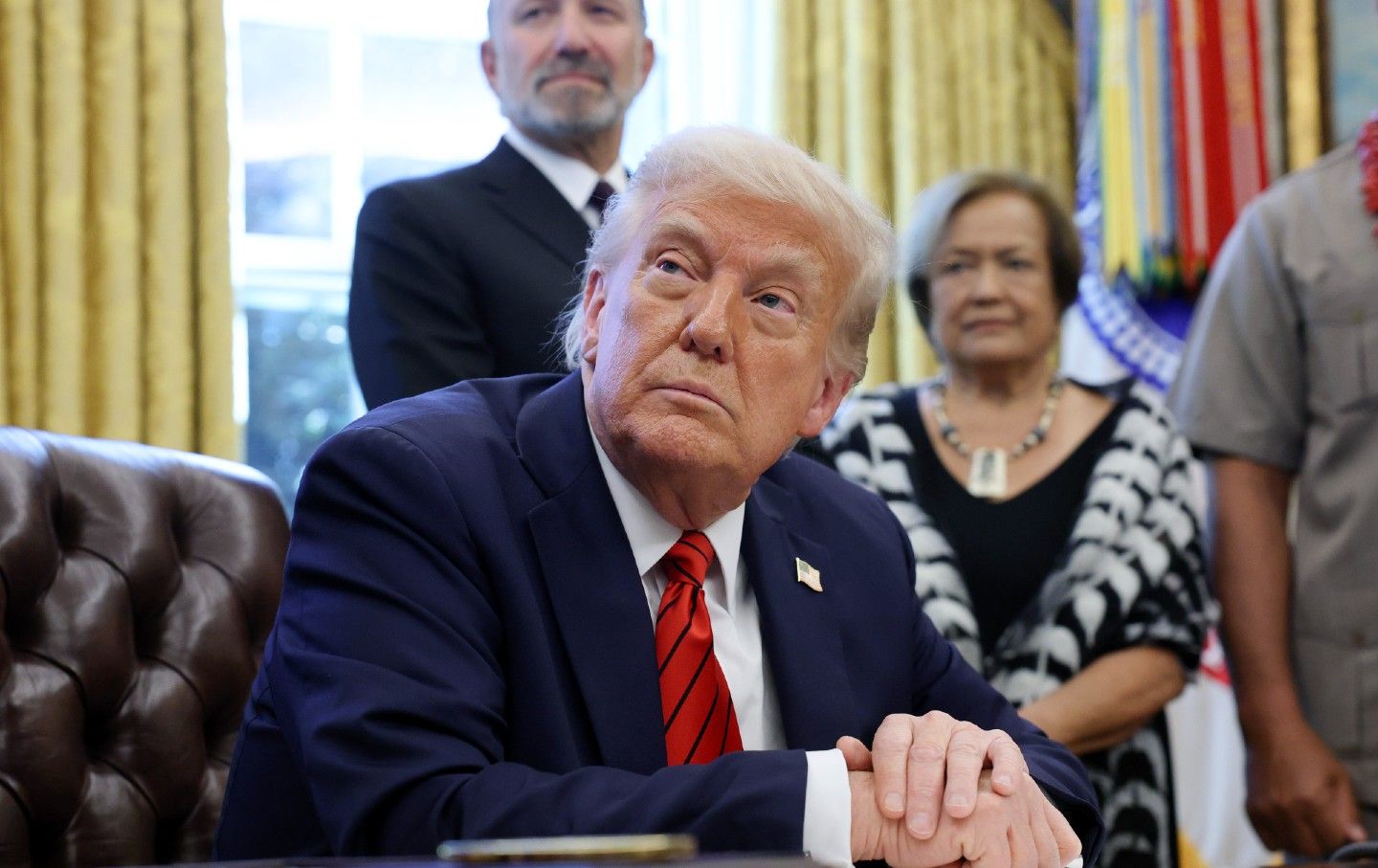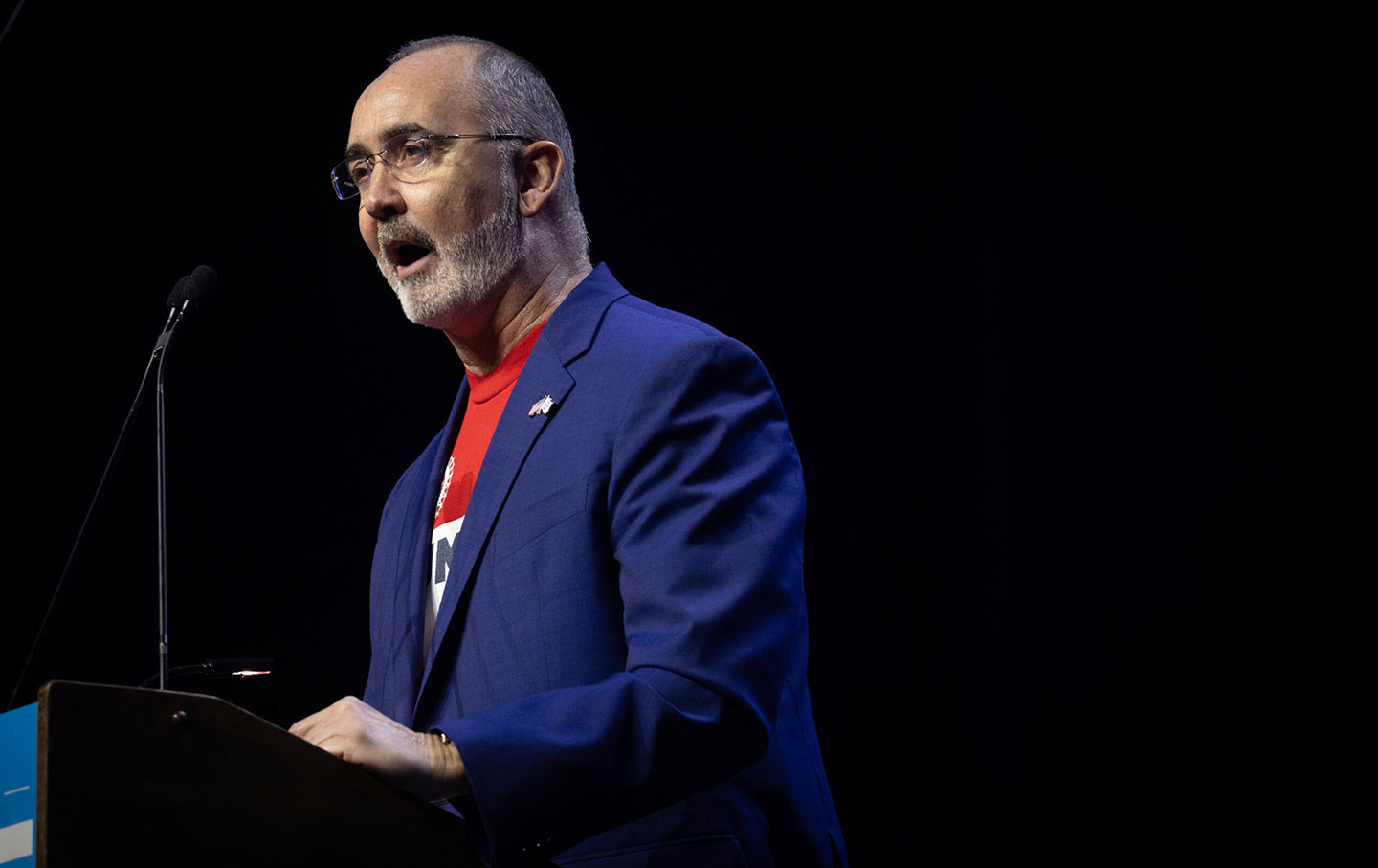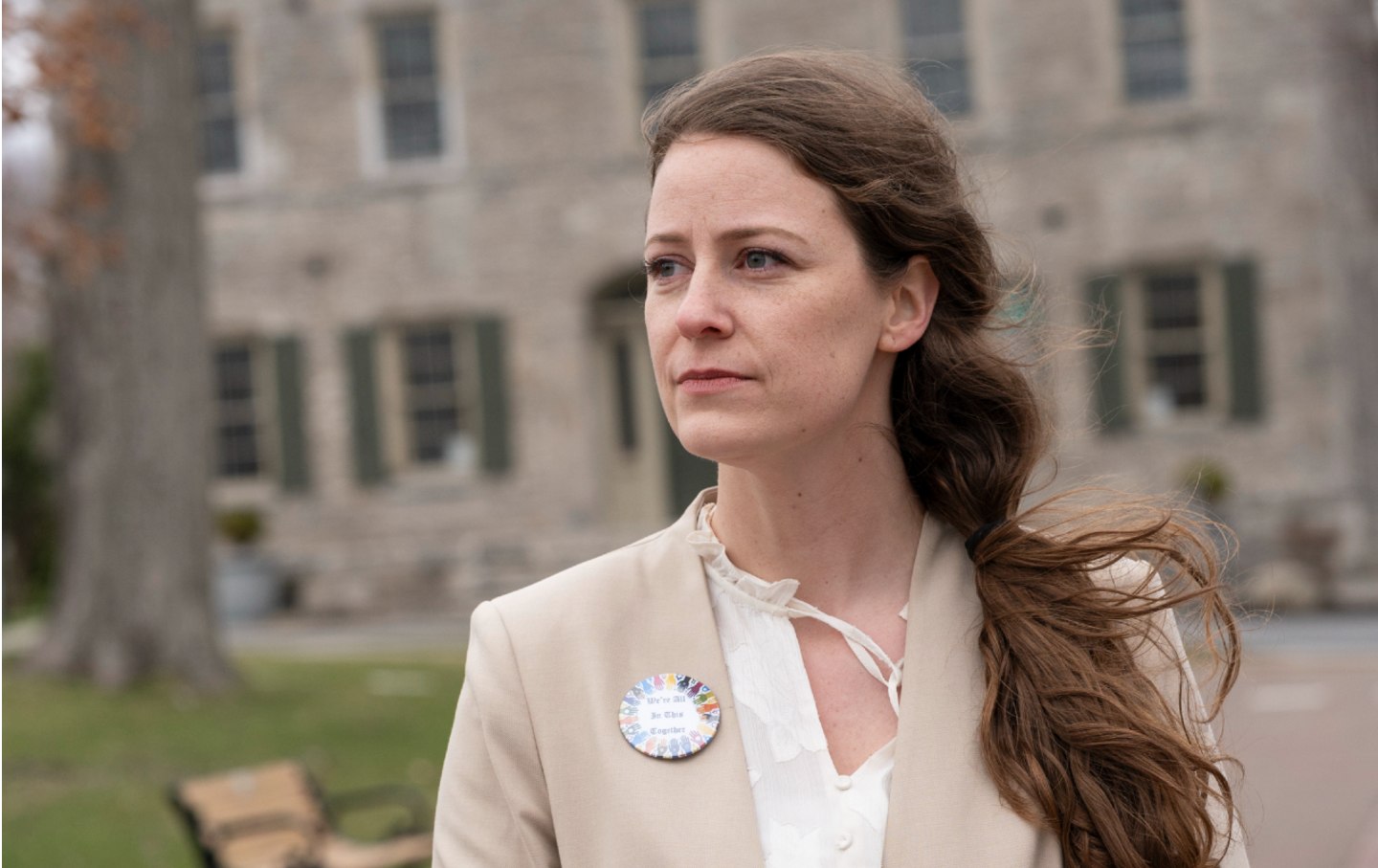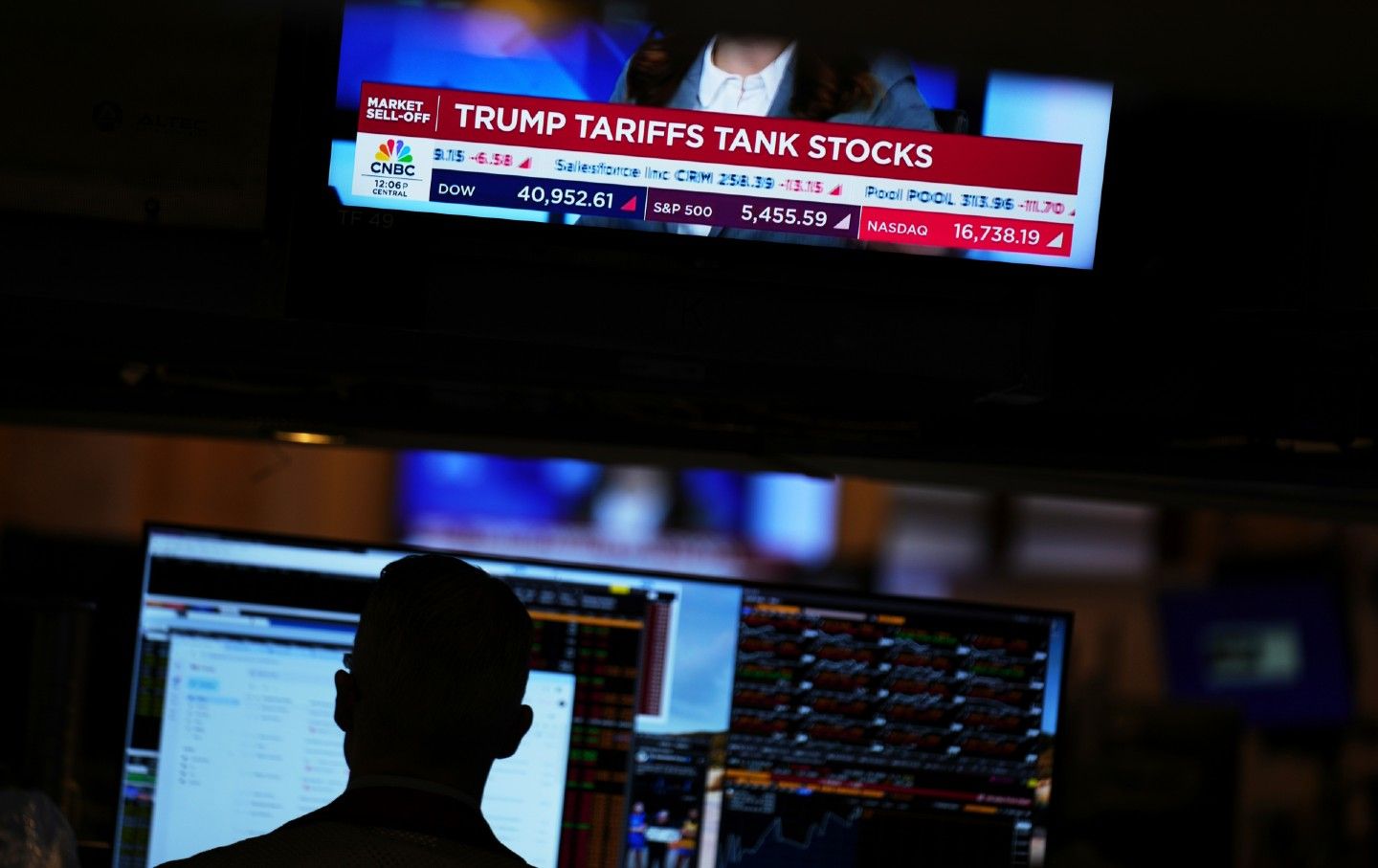Michelle Obama Is a Master of Politics Because She Hates Politics
The former first lady delivers an emotional barnstormer that reaches beyond ideology.

When Barack Obama took the stage at the Democratic National Convention late on Tuesday, he immediately paid tribute to the woman who had just held the audience spellbound. The former president described himself as the “only person stupid enough to speak after Michelle Obama.” This might be dismissed as the sort of husbandly gallantry that politicians too often indulge in—but the fact is, Barack Obama was telling the simple truth. He himself is widely regarded as the most talented American orator of his generation, but Michelle Obama is at the very least his equal. Both Obamas delivered top-notch speeches, ones that in rhetorical deftness and command of ideas stood in sharp contrast to the plodding and trite verbiage that issued from the likes of Senator Chuck Schumer and Governor Kathy Hochul (both of New York). But of the two Obamas, Michelle’s speech was the deeper one, the speech that is most likely to live in the minds of listeners the longest.
The scuttlebutt on Michelle Obama is that she hates politics. She was never enthusiastic about her husband’s decision to run for public office, and was often visibly uncomfortable around some of the more tawdry characters who dominate public life (not least of whom was the president who succeeded her husband, Donald Trump). Many Democrats have dreamed about running Michelle Obama for high office—a natural fantasy given her widespread popularity and commanding public presence. But this particular daydream will never come to pass because, despite her gifts, she has no love of the game of politics.
However, it is this very aversion to politics—when combined with a recognition that political activism is necessary—that explains what makes Michelle Obama such a compelling speaker. She can reach ordinary people who aren’t political junkies or hard-core partisans because she has the same outsider perspective as they do.
Michelle Obama’s speech was about psychology as much as politics, about the despair and depression that the ascendency of Trump has produced in many people, as well as the self-defeating habits of thought that prevent people from throwing themselves into a necessary political battle. At various points, she referred to private matters (the death of her mother, her use of IVF to have children)—moments that served to underscore that she was talking about the election from a place of personal anguish.
The recurring theme of the Harris/Walz campaign is that the Democratic candidates came from the middle class, in contrast to Donald Trump, a child of wealth and privilege. Many speakers hit on this theme, but none did it so effectively as Michelle Obama, because she connected it with the story of those in the middle class who have struggled themselves, while watching privileged figures such as Trump get away with countless crimes and transgressions. Summing up this argument, Michelle Obama said:
“[Kamala Harris] understands that most of us will never be afforded the grace of failing forward, we will never benefit from the affirmative action of generational wealth. If we bankrupt the business or choke in a crisis, we do not get a second, third or fourth chance. If things do not go our way, we do not have the luxury of whining or cheating others to get further ahead. No. We don’t get to change the rules so we always win. If we see a mountain in front of us, we don’t expect there to be an escalator waiting to take us to the top.No. We put our heads down. We get to work. In America, we do something.”
With a simple, elegant turn of phrase (“the affirmative action of generational wealth”), Michelle Obama found a fresh new way to debunk the lie at heart of Trump’s politics.
But Michelle Obama wasn’t content to simply make the case against Trump. She also challenged Democrats to confront their own self-defeating anxieties that often lead to paralysis. In another highlight of the speech she said:
“So no matter how good we feel tonight or tomorrow or the next day, this is going to be an uphill battle, folks. We cannot be our own worst enemies. No. Because the minute something goes wrong, the minute a lie takes hold, folks, we cannot start wringing our hands. We cannot get a Goldilocks complex about whether everything is just right. We cannot indulge our anxieties about whether this country will elect someone like Kamala, instead of doing everything we can to get someone like Kamala elected.”
In talking so bluntly about “anxieties,” Michelle Obama was entering a space no other speaker at the DNC dared enter. Ever since Donald Trump narrowly defeated Hillary Clinton in 2016, many Democrats have naturally drawn the conclusion that the country is too sexist to elect a woman president, let alone a Black woman president. Added on top of this anxiety is the larger fear of the future of American democracy as the GOP has embraced Trumpism—an authoritarian impulse that has already led to one aborted insurrection. In wisely noting that this anxiety existed, Michelle Obama also gave Democrats a language to deal with this emotional paralysis and overcome it.
Barack Obama has delivered major speeches that have entered the canon of American political discourse, notably his 2004 speech affirming there is no division between “Red America” and “Blue America” and his 2008 speech on race. But with her DNC speech in Chicago, Michelle Obama has herself delivered a message that will resonate not only in this election but for years to come.
Hold the powerful to account by supporting The Nation
The chaos and cruelty of the Trump administration reaches new lows each week.
Trump’s catastrophic “Liberation Day” has wreaked havoc on the world economy and set up yet another constitutional crisis at home. Plainclothes officers continue to abduct university students off the streets. So-called “enemy aliens” are flown abroad to a mega prison against the orders of the courts. And Signalgate promises to be the first of many incompetence scandals that expose the brutal violence at the core of the American empire.
At a time when elite universities, powerful law firms, and influential media outlets are capitulating to Trump’s intimidation, The Nation is more determined than ever before to hold the powerful to account.
In just the last month, we’ve published reporting on how Trump outsources his mass deportation agenda to other countries, exposed the administration’s appeal to obscure laws to carry out its repressive agenda, and amplified the voices of brave student activists targeted by universities.
We also continue to tell the stories of those who fight back against Trump and Musk, whether on the streets in growing protest movements, in town halls across the country, or in critical state elections—like Wisconsin’s recent state Supreme Court race—that provide a model for resisting Trumpism and prove that Musk can’t buy our democracy.
This is the journalism that matters in 2025. But we can’t do this without you. As a reader-supported publication, we rely on the support of generous donors. Please, help make our essential independent journalism possible with a donation today.
In solidarity,
The Editors
The Nation









